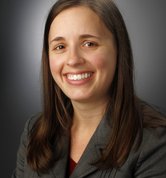When he ran for governor, Bob McDonnell promised to simplify the labyrinth of workforce training programs in Virginia.
His 2009 education plan said: "Right now there are nearly 23 different workforce training programs, spread across nine different agencies. McDonnell will consolidate these efforts and make our community colleges the focus of a comprehensive workforce training system -- one that is aligned with emerging economic trends, and is geared to occupations our employers need to remain competitive in our fast-changing private sector.”
The workforce training programs -- some funded by the federal government, others created by the state -- are designed to help unemployed people develop job skills and find work. They offer tutelage in a variety of areas, including resume writing, how to search for jobs, career planning, literacy and occupational skills.
Their lack of central oversight in Virginia for years had made it difficult for people to find and use the training programs. In 2002, the Joint Legislative Audit and Review Commission urged state lawmakers to consolidate all of the programs under one government entity.
Former Gov. Tim Kaine made strides in that direction in 2008 by putting some of the federal programs under the Virginia Community College System and creating the position of chief workforce development officer in 2006. An existing advisory council, which had been ensuring Virginia complied with U.S. workforce training requirements since 1999, worked within the new structure.
McDonnell has gone a step further, putting all of the federal and state training programs under one person in a newly created job: the director of education and workforce development. Elizabeth Creamer, a veteran administrator in the community college system, was appointed to the post.
Last fall, a memorandum of understanding was signed by Creamer and the heads of seven remaining agencies with roles in workforce training, formalizing the new coordination of programs. One of the key goals is to offer all of the programs at "One Stop” centers through community colleges in each of the state's 17 workforce development districts.
Earlier this year, the General Assembly passed a joint resolution calling on JLARC to update its 2002 report on the efficiency of the state's workforce development programs. The study is due early next year.
We'll definitely read JLARC's report. But based on what we've learned so far, we feel comfortable in giving McDonnell a Promise Kept.
